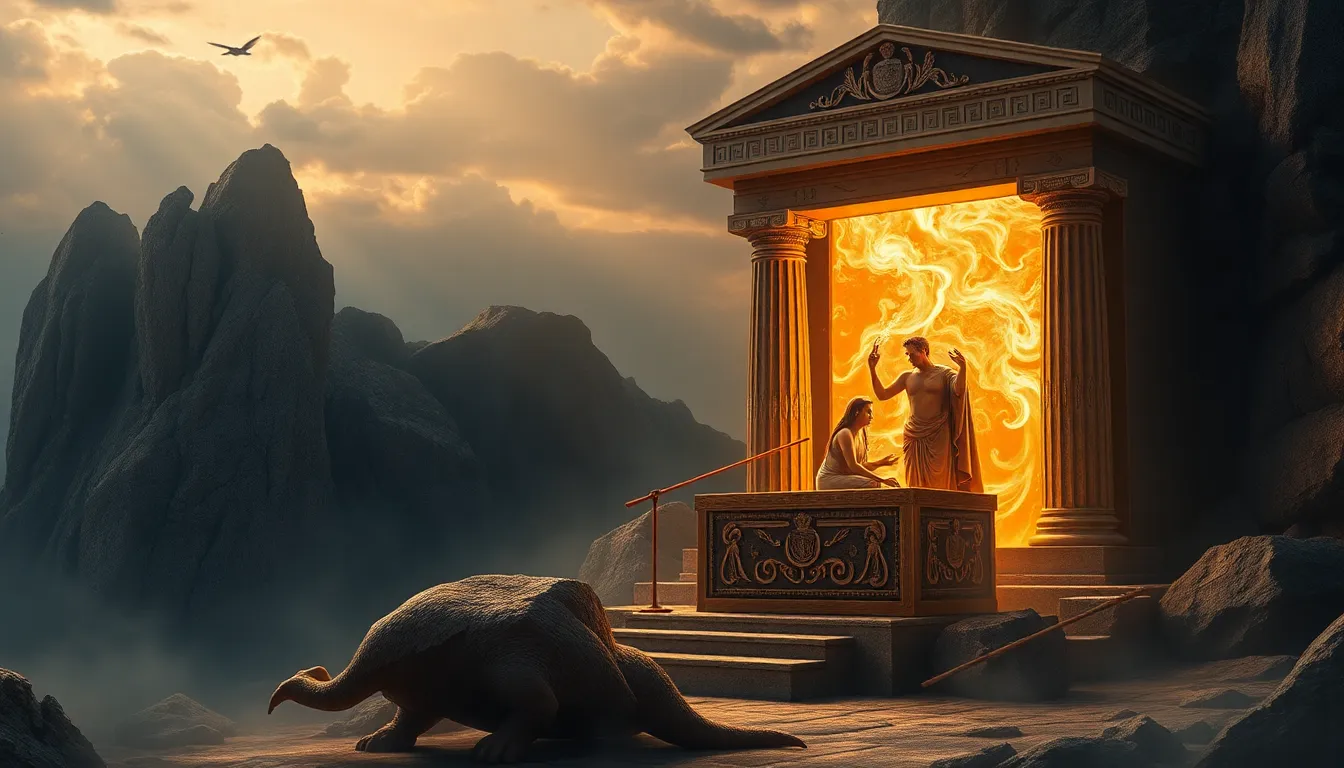Pandora’s Box: A Cautionary Tale for Modern Times
I. Introduction
The myth of Pandora’s Box is a timeless tale from Greek mythology that continues to resonate in contemporary society. It serves as a cautionary tale about curiosity and the unforeseen consequences of our actions. This article aims to explore the lessons learned from the myth, highlighting its relevance in our modern context.
II. The Myth of Pandora’s Box
The origin of the myth can be traced back to ancient Greece, where it was told as part of the larger narrative surrounding the creation of humanity. According to the myth, Pandora was the first woman, crafted by the gods as a gift to Epimetheus, the brother of Prometheus. Despite Prometheus’s warning not to accept gifts from the gods, Epimetheus fell in love with Pandora.
When Pandora received a jar (commonly referred to as a box in modern retellings), she was instructed not to open it. However, driven by insatiable curiosity, she eventually succumbed, releasing all the evils of the world—sorrow, disease, and despair. The only thing left inside the jar was hope, offering a glimmer of light amidst the darkness.
This myth highlights the significance of curiosity, portraying it as a double-edged sword. While curiosity can lead to knowledge and discovery, it can also unleash chaos and suffering when unchecked.
III. Unpacking the Contents of the Box
As Pandora’s Box was opened, a multitude of evils escaped into the world:
- Disease
- Despair
- Hardship
These evils can be compared to modern societal issues, such as:
- The rise of mental health challenges
- Global pandemics
- Social inequalities
Despite the evils unleashed, hope remained inside the jar. This aspect of the myth emphasizes the importance of hope in overcoming adversity. In contemporary society, we witness numerous examples of resilience and hope, such as:
- Community support during crises
- Movements advocating for social justice
- Innovations in medical science offering new treatments
IV. Curiosity in the Digital Age
In today’s digital age, curiosity manifests in new ways, primarily through technology and social media. The internet provides unprecedented access to information, sparking curiosity across diverse realms of knowledge.
However, this access comes with a double-edged sword:
- Information overload can lead to confusion and misinformation.
- Privacy concerns arise as personal data is shared online.
Case studies illustrate the consequences driven by curiosity. For instance, the spread of misinformation during the COVID-19 pandemic has shown how unchecked curiosity can lead to harmful beliefs and behaviors. Similarly, privacy breaches have raised questions about the ethical use of data and the responsibilities of those who wield it.
V. Environmental Challenges: A Modern Pandora’s Box
The metaphor of Pandora’s Box extends to environmental challenges we face today. As humanity advances technologically, we often overlook the potential consequences of our actions, leading to significant environmental degradation.
Global implications include:
- Climate change
- Loss of biodiversity
- Pollution of air and water sources
Unforeseen consequences arise from technological advancements, such as:
- Plastic pollution
- Deforestation
- Resource depletion
To mitigate these risks, it is crucial to adopt sustainable practices and foster a culture of environmental responsibility.
VI. Psychological and Social Implications
The impact of the evils released from Pandora’s Box is evident in the realm of mental health and social dynamics. Anxiety and mental health issues have surged, exacerbated by the overwhelming nature of modern life.
Curiosity plays a significant role in social dynamics, influencing knowledge sharing and interpersonal relationships. However, it is essential to balance knowledge with responsibility. The spread of harmful information can erode trust and create divisions within communities.
VII. Lessons from Pandora’s Box for Future Generations
The myth of Pandora’s Box offers valuable lessons for future generations:
- Encouraging responsible curiosity and critical thinking is vital. Individuals must learn to question and analyze information rather than accept it at face value.
- Ethical considerations in scientific exploration cannot be overlooked. As we push the boundaries of knowledge, we must ensure that our pursuits do not harm society or the environment.
- Fostering hope and resilience in the face of challenges is essential for navigating the complexities of modern life. By nurturing a hopeful outlook, we can inspire positive change.
VIII. Conclusion
The relevance of Pandora’s Box in modern times serves as a reminder of the dangers of unchecked curiosity and the importance of hope in overcoming adversity. As we reflect on the lessons from this ancient myth, it becomes clear that embracing curiosity responsibly is crucial for creating a better future.
By learning from the past and applying these lessons, we can navigate the complexities of our world with wisdom and compassion. Let us strive to nurture curiosity that leads to positive outcomes, ensuring that the hope within Pandora’s Box remains a guiding light for generations to come.




